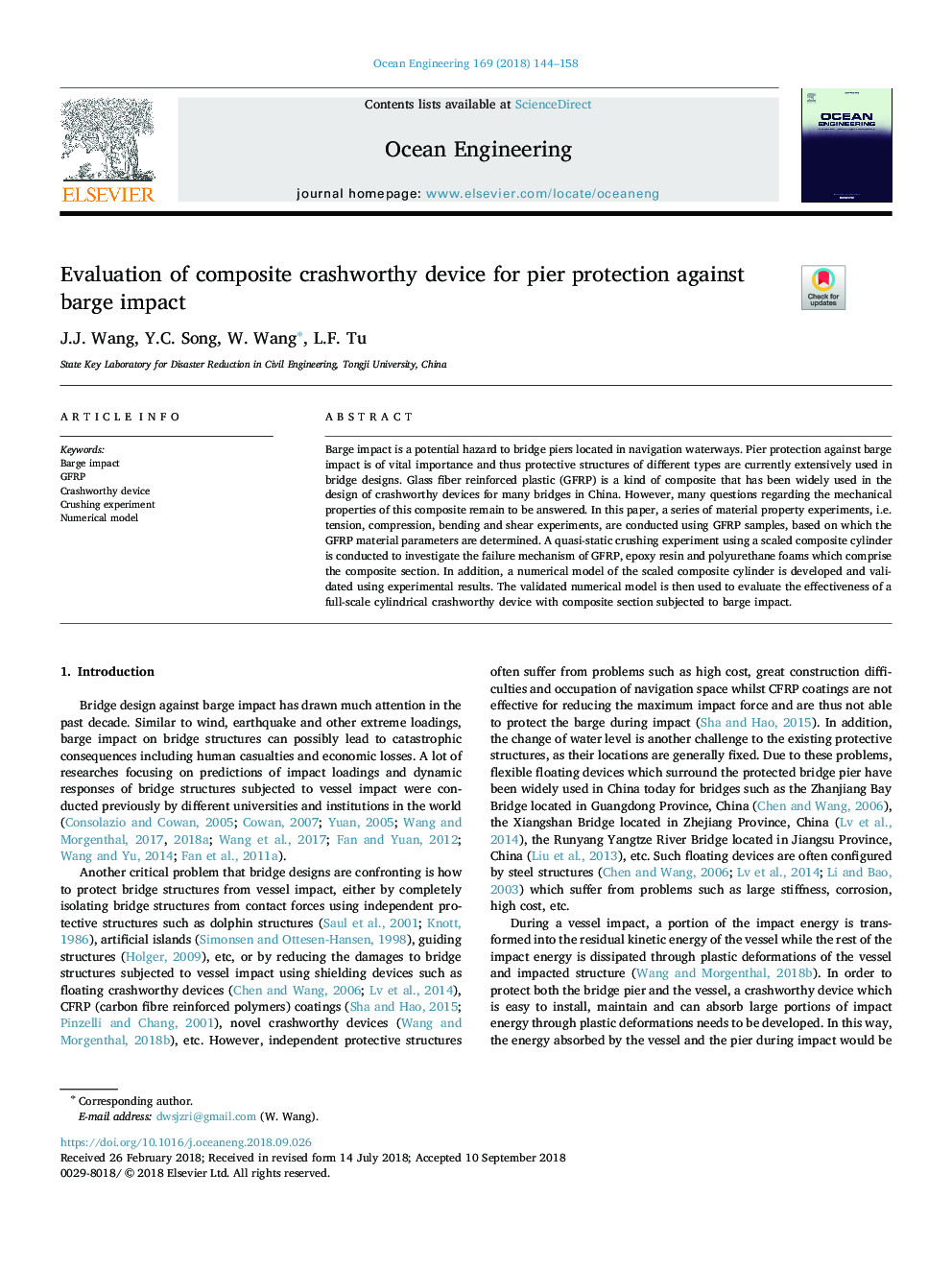| Article ID | Journal | Published Year | Pages | File Type |
|---|---|---|---|---|
| 10156180 | Ocean Engineering | 2018 | 15 Pages |
Abstract
Barge impact is a potential hazard to bridge piers located in navigation waterways. Pier protection against barge impact is of vital importance and thus protective structures of different types are currently extensively used in bridge designs. Glass fiber reinforced plastic (GFRP) is a kind of composite that has been widely used in the design of crashworthy devices for many bridges in China. However, many questions regarding the mechanical properties of this composite remain to be answered. In this paper, a series of material property experiments, i.e. tension, compression, bending and shear experiments, are conducted using GFRP samples, based on which the GFRP material parameters are determined. A quasi-static crushing experiment using a scaled composite cylinder is conducted to investigate the failure mechanism of GFRP, epoxy resin and polyurethane foams which comprise the composite section. In addition, a numerical model of the scaled composite cylinder is developed and validated using experimental results. The validated numerical model is then used to evaluate the effectiveness of a full-scale cylindrical crashworthy device with composite section subjected to barge impact.
Keywords
Related Topics
Physical Sciences and Engineering
Engineering
Ocean Engineering
Authors
J.J. Wang, Y.C. Song, W. Wang, L.F. Tu,
